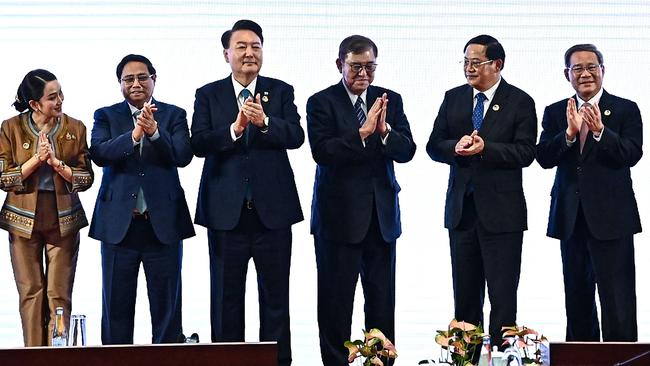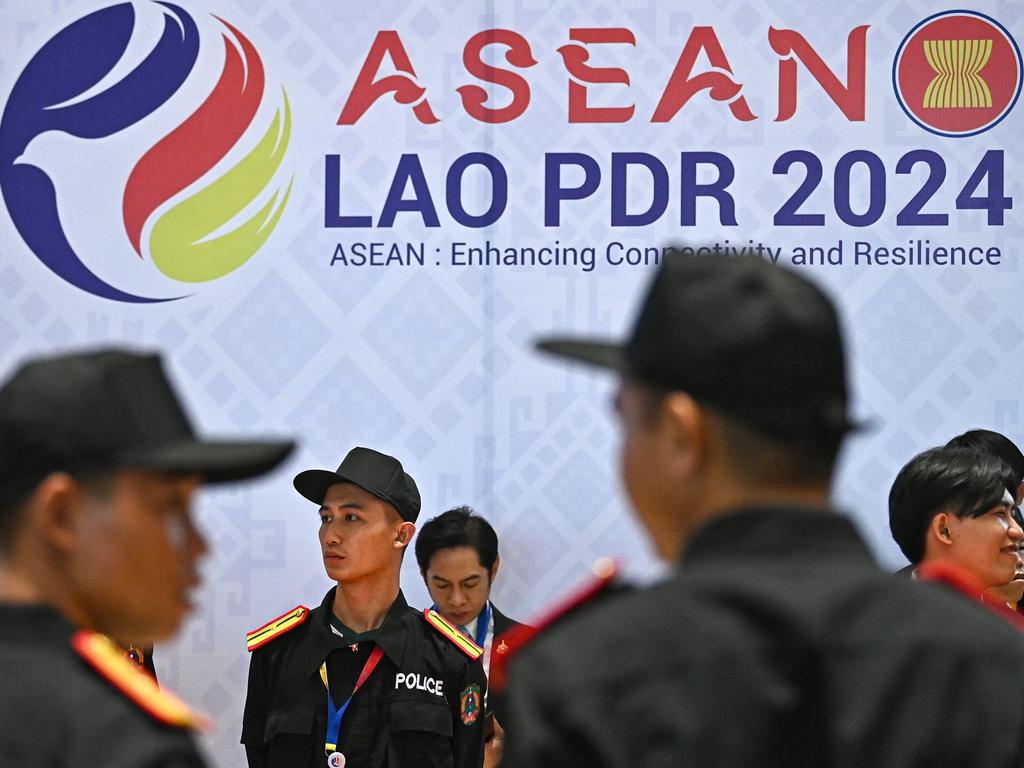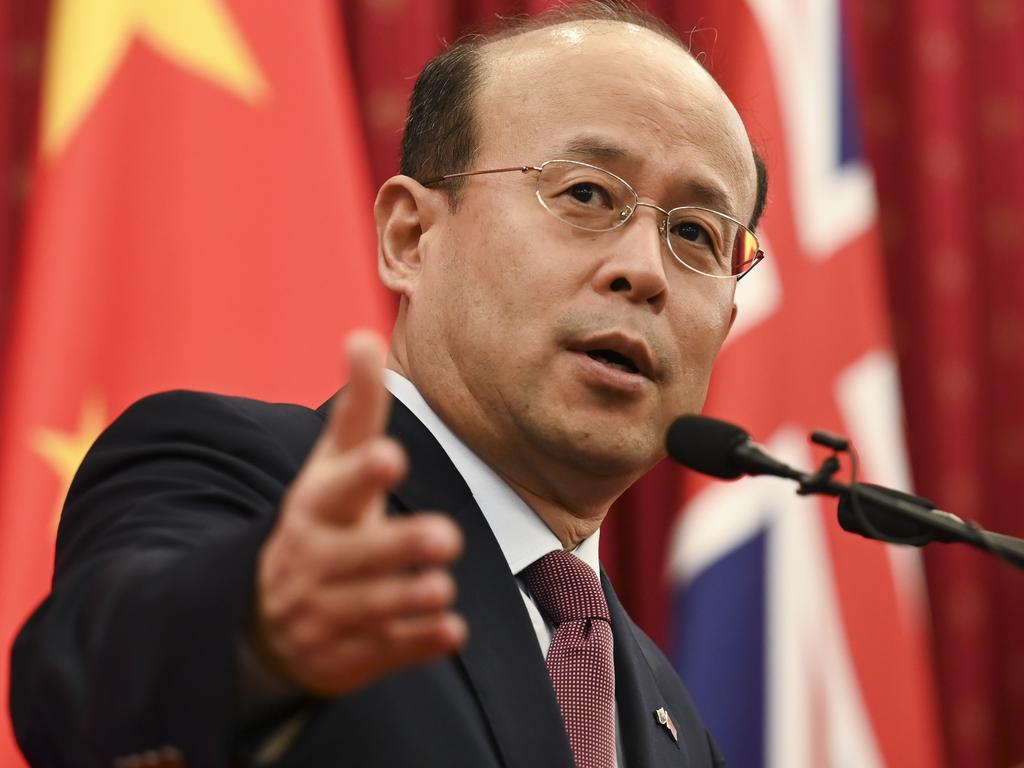East Asian forum fails to land consensus
China and Russia vetoed a joint East Asia Summit statement last week over the South China Sea, prompting a former Defence Department official to warn some multilateral forums were ‘on the cusp’ of becoming obsolete.

China and Russia vetoed a joint East Asia Summit statement last week on disagreements over the South China Sea, prompting a former Defence Department official to warn some multilateral forums were “on the cusp” of becoming obsolete.
While a proposed set of words was put to the East Asia summit by ASEAN, The Australian understands Moscow and Beijing opposed the joint statement, which needs total consensus to be passed and publicly released.
It is not the first time the summit has been unable to land on an agreement, with countries also unable to reach consensus after the 2022 summit.
Strategic Analysis Australia director Peter Jennings said the inability of ASEAN and the East Asia Summit to secure consensus on key issues – including the South China Sea and the Middle East conflict – brought into question the forum’s effectiveness.
“I think ASEAN has always been very effective in holding the Southeast Asian 10 countries together at times when they had their own disputes and so I give them a tick for that, but where I think they failed is they’ve never been able to translate that into a sort of a collective response to external problems,” he said.
“They don’t know how to deal with great-power conflict and that’s what China has now presented. And so I think it’s time for the Southeast Asian countries, as the core of the East Asia Summit, to move on … or to work out how can they deliver a little bit of substance. That’s where they’re at.”
Anthony Albanese said he had made clear Australia’s views on matters including the South China Sea and the Middle East while meeting other leaders in Laos last week, declaring the forum remained an important place to engage in dialogue with countries, including China.
The Prime Minister likened dialogue with Beijing to the engagement between the US and the Soviet Union during the Cold War, saying it was important Australia was able to discuss its differences with China “in a professional, clear and direct way”.
Opposition foreign affairs spokesman Simon Birmingham said it was “both instructive and troubling” that China and Russia had blocked the “most basic of commitments” to respect the UN Convention on the Law of the Sea. “ASEAN nations deserve credit for agreeing consensus text among themselves and we should continue to support their efforts to have the sovereignty of their member nations respected,” he said.
“Much of the Chinese government’s aggressive … military tactics are premised on territorial claims that have no basis in international law. As a major power, the Chinese government should show leadership by respecting the sovereignty and territorial rights of its neighbours rather than threatening them.”
Senator Birmingham said Australia needed to “continue to stand by ASEAN nations” as they faced disputes with China.
But Mr Jennings said other forums, such as the Quad, were more effective in addressing China’s aggression. He also criticised Mr Albanese for calling for broad consensus among ASEAN countries on issues such as Israel, which he said the Prime Minister “knows perfectly well is not deliverable”.







